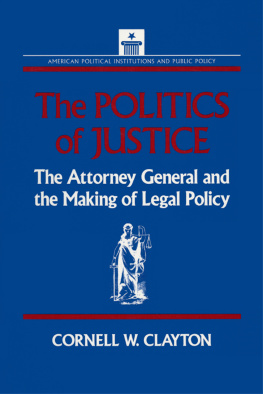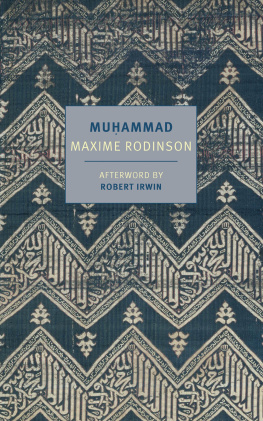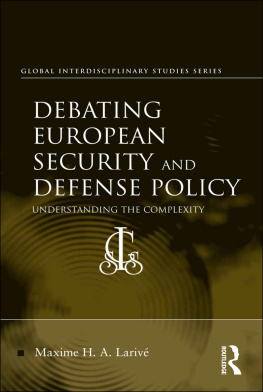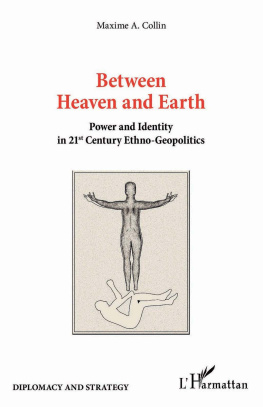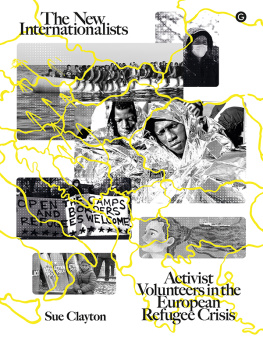This book is a publication of
INDIANA UNIVERSITY PRESS
Office of Scholarly Publishing
Herman B Wells Library 350
1320 East 10th Street
Bloomington, Indiana 47405 USA
iupress.indiana.edu
2015 by Anthony Clayton
All rights reserved
No part of this book may be reproduced or utilized in any form or by any means, electronic or mechanical, including photocopying and recording, or by any information storage and retrieval system, without permission in writing from the publisher. The Association of American University Presses Resolution on Permissions constitutes the only exception to this prohibition.

The paper used in this publication meets the minimum requirements of the American National Standard for Information SciencesPermanence of Paper for Printed Library Materials, ANSI Z39.481992.
Manufactured in the United States of America
Library of Congress Cataloging-in-Publication Data
Clayton, Anthony, [date]
General Maxime Weygand, 18671965 : fortune and misfortune / Anthony Clayton.
pages cm
Includes bibliographical references and index.
ISBN 978-0-253-01582-2 (cloth : alk. paper) ISBN 978-0-253-01585-3 (ebook) 1. Weygand, Maxime, 18671965. 2. GeneralsFranceBiography. 3. France. ArmeOfficersBiography. 4. World War, 19391945CampaignsFrance. 5. World War, 19391945CampaignsAfrica, North. I. Title.
DC373.W4C53 2015
355.0092dc23
[B]
2014029045
1 2 3 4 5 20 19 18 17 16 15
In the summer of 1920, in
the Polish capital city, Warsaw,
a French officer and a British officer
worked closely together for a common good.
The personality of the French officer left its mark
on his British colleague. Almost a century later,
a by-product was to be this work.
The British officer was this authors father.
PREFACE AND ACKNOWLEDGMENTS
General Maxime de Nimal Weygand lived an extraordinary life, achieving a pinnacle of fame and prestige, but then later finding himself, in the words of Shakespeares Rosalind, out of suits with fortune, a life that presents a challenge to any biographer.
From the circumstances of his birth to the arrangements for his funeral Weygand aroused controversy. After an outstanding First World War career as chief of staff for Marshal Foch and service after the war in Poland and Syria, Weygand became increasingly alarmed by the accession to power of the Nazis in Germany and German rearmament. As a national figure of great prestige and until 1935 Frances senior soldier, Weygand had to face the first of two of the most difficult decisions that could confront an army commander in peacetime: what should he do when faced with a clear and highly dangerous military threat likely to bring catastrophe upon his country when the civilian political leadership largely chose to deny the threat? Weygands concerns over the state of the French army, concerns also expressed by some right-wing groups, led to accusations that he was anti-democratic. He always personally disassociated himself from the political activities of these groups, but the accusations were to reappear after the end of the Second World War.
Summoned to be commander in chief in mid-May 1940, Weygand was very quickly faced with his second and even more difficult decision: what does an army commander do when before him lies a crushing military defeat not of his own making but bringing with it heavy bloodshed of his soldiers and appalling civilian suffering? Weygands battle plans to meet the German invasion were as sound as any could be in this situation, but with total defeat only a few days away he almost violently imposed his will on the French prime minister, shouting against proposals for a complete surrender and laying down of arms (and for allowing the government to depart into a secure ease). Instead, Weygand sought an armistice in order to save military and civilian lives and to provide a period of truce during which France might rebuild capability for a later return to the war.
The post-armistice Vichy government headed by Marshal Ptain, at that time still held in high regard, was hugely popular with the French public. At its outset Weygand had every reason, political and constitutional, for considering it a legitimate government. Weygand was sent to North Africa with full vice regal powers in October 1940 and spent a year there covertly laying the foundations for an army to rejoin the Allied cause, as later lArme de Weygand was to do in Tunisia, in Italy, and in the Liberation campaigns. He also initiated economic and intelligence relationships with the United States. Weygand was totally opposed to the views gaining strength in Vichy that a German victory was inevitable and that French interests were best secured by association with the Germans as a loyal junior partner. His opposition to these views, vigorously expressed, led to his dismissal in November 1941. These twelve months in service to Ptain and the Vichy government unfortunately established the grounds for his vendetta with Charles de Gaulle in London.
In the final Vichy years when occurred the regimes worst excessesthe fascist-style militia and the dispatch of Jewish men women and children to extermination campsWeygand was no longer in office. After the German entry into Unoccupied France, he was arrested by the Germans, remaining in prison for the rest of the war. He was released in May 1945, only to be immediately rearrested in Paris on the orders of de Gaulle. In the climate of the Liberation, de Gaulle and the Resistance were presented as the only paths of honor, and any senior figure who had served Vichy was considered to have been dishonorable and probably treacherous. Ptain himself was tried and imprisoned for life. After lengthy and controversial court proceedings and inquiries, Weygand was acquitted of the charges brought against him, the court ruling that he had never acted against the interests of France. His honorsand full pensionwere restored to him. However, at his death in 1965 when de Gaulle was president of the Republic, Weygand was deprived of the honor of a military funeral. Despite this ban, a very large number of wartime generals and other officers were present for the funeral service at a parish church in Paris.
In consideration of this turbulent life two other issues personal to Weygand merit mention. The first is the old military clich that good staff officers do not make good commanders. Weygands battlefield decisions in 1940 have been criticized, but there is little reason to suggest any were wrong, and strong arguments can be made that they were the best and most honorable options open to him. The second issue is whether any tensions arising from his origins affected the decisions that he had to make. There is certainly evidence that internal tensions, in a man whose temperament was more soldierly than patient, appeared in explosions of temper at moments of exasperation. But these were no worse than outbursts by many other generals, Frenchand American. There is no case here for psychohistory.


 1867-1965
1867-1965
 The paper used in this publication meets the minimum requirements of the American National Standard for Information SciencesPermanence of Paper for Printed Library Materials, ANSI Z39.481992.
The paper used in this publication meets the minimum requirements of the American National Standard for Information SciencesPermanence of Paper for Printed Library Materials, ANSI Z39.481992.



